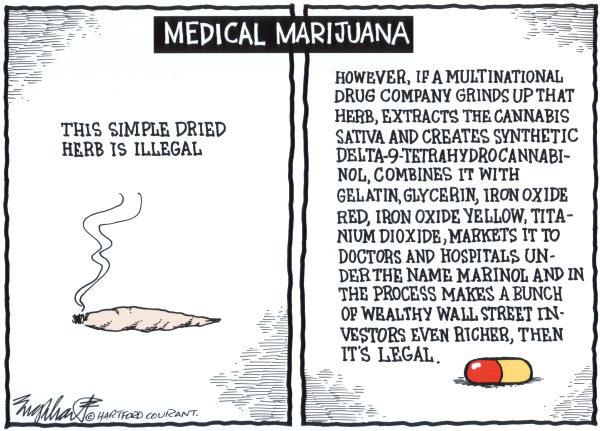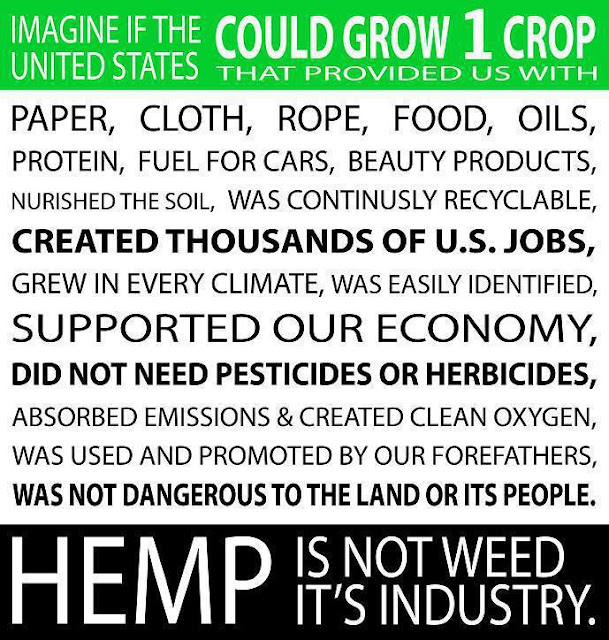1. High potential for abuse? Hardly: while upwards of 42% of American adults have smoked marijuana at least once in their life, less than 1% smoke it on a daily basis. And whereas alcohol is linked to over 75,000 deaths per year, and cigarettes roughly 400,000 per year, the world is still waiting for the first-ever instance of marijuana fatality. This is a drug on which it is impossible to overdose.
It is a byproduct of the pursuit of happiness that man has the right to debilitate himself - as long as he does not harm his neighbor while doing so. It is perfectly legal to abuse to any desirable degree - even to the point of death - the drugs Marlboro, Jack Daniels, and McDonalds, as well as base jumping, cave diving, and bull riding. It should come as no surprise that almost all of these highs are more addictive than marijuana, and cause more deaths per year. What's more? Many of them do cause harm to innocent bystanders.
So will those who wish to keep pot illegal also criminalize these more dangerous drugs? I'll put down my bong when you put down your Big Mac.
2. No currently accepted medical use? This one need not be seriously addressed. Since 1970, 14 states have legalized marijuana for medicinal purposes, quite simply because it has medical value - something that has been known throughout human history. Today it is used to reduce pain and nausea for chemotherapy and AIDS patients, and sufferers of glaucoma and multiple sclerosis.
And this isn't just theoretical. Seniors are discovering the medical benefits more and more each year. From 2002-2008, marijuana usage among 55-59 year-olds tripled, from 1.6% to 5.1%. This is not an insignificant statistic upon reflection, because one of the biggest components to the coming narrative battle will be "a fight for civil liberties" versus "lazy twenty-somethings looking for an excuse to get high." If the latter wins out, look for all elected officials who may initially have been supportive of the proposition: they will have run for the hills. As Joe Klein puts it in a 2009 piece for Time: "...the default fate of any politician who publicly considers the legalization of marijuana is to be cast into the outer darkness. Such a person is assumed to be stoned all the time, unworthy of being taken seriously." The increased medicinal usage amongst seniors should demonstrate that responsible marijuana smoking is not only a conceivable practice - but one that already exists.
3. Lack of accepted safety for use? A good time to mention that the legalization of marijuana would incur the regulation of marijuana. Just as we allow other potentially harmful and destructive elements into society and regulate them, so would be the case with pot. Most, if not all, of the current safety hazards associated with marijuana exist because the substance is illegal and unregulated. Just as alcohol prohibition led to organized crime and poorly-crafted homemade booze (that often led to alcohol poisoning), the continued criminalization of marijuana has led to a massive underground drug trade between southwestern states and Mexico, and the substance itself is not subject to any pharmacological scrutiny. Thus we are unable to monitor potency and purity of the pot that is in circulation.
Uses of pot
This looks like an herb to me. Call it what you want, I'm pretty sure it's not a drug.























































.jpg)